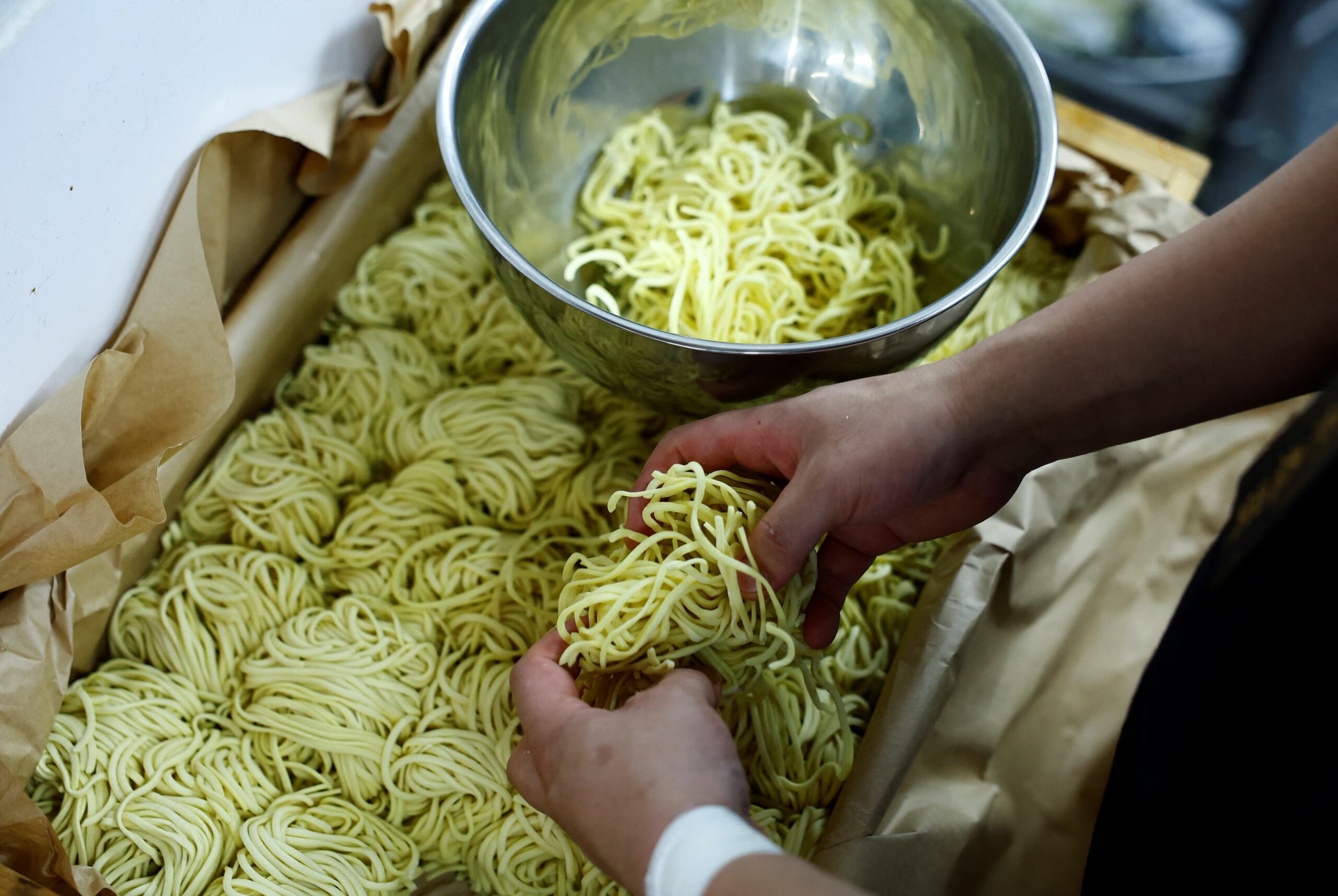Japan’s rising ramen prices give election voters food for thought | Reuters
Ramen prices are soaring in Japan, causing voters to rethink their choices as the country heads into a general election. As the cost of ingredients and fuel continues to rise, many ramen shop owners struggle to keep their businesses afloat. Taisei Hikage, a 26-year-old ramen shop owner in Tokyo, has raised his prices three times since opening his shop a year and a half ago. His popular “Special Ramen” now costs 1,250 yen (around $8), a staggering 47% increase.
“Traditionally, ramen shops were supposed to offer something cheap and tasty,” Hikage said as he prepared his signature dish. “But now, it’s no longer cheap food for the masses.” Hikage is not alone in his struggle; many ramen shops are facing the threat of bankruptcy due to increasing costs. A record number of ramen shop operators are expected to go bankrupt this year, reflecting a growing cost-of-living crisis that is becoming a critical issue for voters.
As Japan approaches its general election on Sunday, voters are concerned about rising prices. The ruling Liberal Democratic Party (LDP), led by Prime Minister Shigeru Ishiba, has pledged various measures to help offset these costs for businesses and households. Ishiba, a self-proclaimed ramen lover, is under pressure to address the economic challenges facing the nation. Meanwhile, opposition parties are also promising relief to voters struggling with rising prices.
Hikage is too busy to vote this election, but he hopes the winning party will consider implementing subsidies to help businesses like his. His award-winning ramen continues to draw crowds, with long lines outside his shop day and night. However, not all ramen shop owners are doing as well. According to credit research firm Teikoku Databank, 49 ramen shop operators with debts exceeding 10 million yen filed for bankruptcy in the first seven months of the year. This number is on track to surpass the previous record of 54 bankruptcies set in 2020.
Hikage takes pride in using mostly domestic ingredients, but many ramen shops depend on imported materials, such as flour for their noodles. The costs of these imports have surged due to a weak yen, which recently hit a 34-year low against the dollar. Higher energy and grain prices, influenced by Russia’s war in Ukraine, have also contributed to rising expenses for ramen shops, along with increasing labor costs.
The challenges faced by ramen shops reflect a broader trend in Japan’s economy. Nationwide bankruptcies increased by 18.6% in the first six months of 2024 compared to the same period last year, totaling nearly 5,000 cases. This increase is largely due to inflation, as noted by Teikoku Databank. “Ramen shops are among those that are adapting to inflation by raising their prices,” said Toshihiro Nagahama, an executive chief economist at Dai-ichi Life Research Institute. “Those businesses that cannot pass on higher costs to customers are struggling to survive.”
While some businesses manage to raise prices and grow their sales, others that fail to adapt are being eliminated from the market. However, Nagahama warned that politicians’ attempts to provide support to struggling companies could have long-term consequences. “If too many ‘zombie’ firms, or companies that cannot improve productivity or wages, are kept alive, they could hinder the Japanese economy,” he said.
As the election approaches, many voters are pondering their options. The rising costs of daily necessities like ramen have become a hot topic. Hikage, like many others in his industry, hopes the election will bring positive change. “For now, our job is to endure and focus on providing delicious food,” he stated. “We bow our heads in gratitude to our customers.”
The soaring prices of ramen are not just a local issue; they resonate with voters across Japan. As the general election draws closer, the public is increasingly concerned about how to address the rising cost of living. Politicians are expected to respond, but whether their actions will be effective remains to be seen. In the meantime, ramen shop owners like Hikage will continue to navigate these challenging times, hoping for a brighter future while keeping their culinary traditions alive.
#RamenPrices #JapanEconomy #CostOfLiving #Election2024 #FoodForThought
